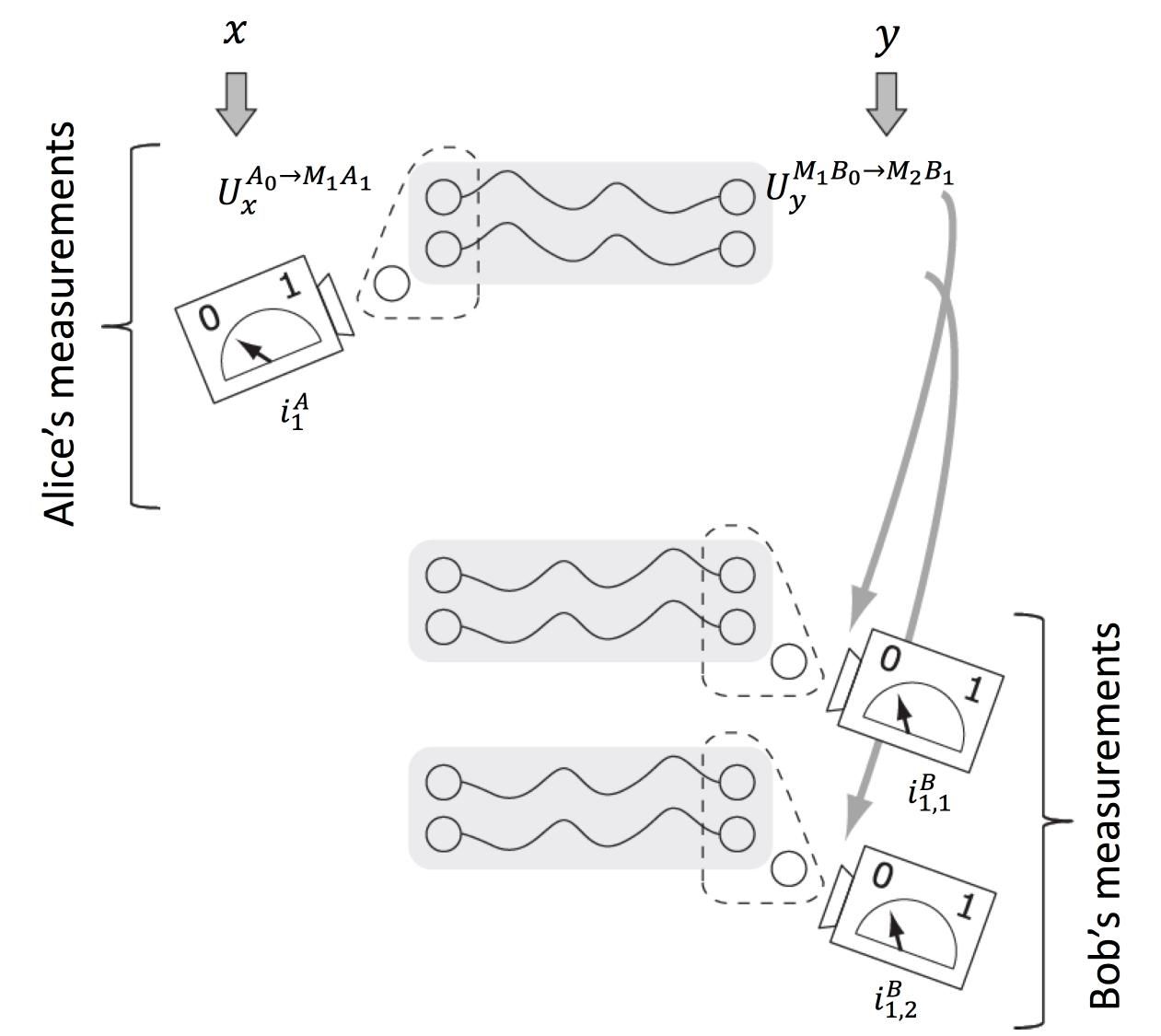Page 8576
Jun 14, 2016
Android inventor Andy Rubin thinks the future of smartphones might be a single AI
Posted by Klaus Baldauf in categories: computing, mobile phones, quantum physics, robotics/AI
Andy Rubin, who co-founded Android and jump-started Google’s robotics efforts, imagines a future where artificial intelligence is so powerful that it powers every connected device. Speaking at Bloomberg’s Tech Conference in San Francisco today, Rubin said a combination of quantum computing and AI advancements could yield a conscious intelligence that would underpin every piece of technology. “If you have computing that is as powerful as this could be, you might only need one,” Rubin says. “It might not be something you carry around; it just has to be conscious.”
It sounds outlandish and theoretical, and it is. But Rubin, with his investment fund Playground Global, is investing in companies trying to make that kind of wondrous future a reality. One such company, a quantum computing firm Rubin would not name, is composed of researchers he thinks may one day commercialize quantum devices using standard manufacturing processes. Quantum computing promises exponential boosts in processing power, in part by harnessing the probabilistic nature inherent to the physics discipline.
Rubin thinks there’s substantial overlap coming down the line for quantum computing, AI, and robotics. “In order for AI to blossom and fulfill consumer needs, it has to be about data,” he says. “That’s where robotics come in — robots are walking mobile sensors, who can sense their environment and interact and learn from those interactions.” Furthermore, Rubin adds, both AI and quantum computing are good at pattern matching and could greatly complement one another. “Those two things combined in hundreds of years might get us to the point of this conundrum, who is the master and who is the servant and all that,” he says.
Jun 14, 2016
Here’s why the government should give you $1,000 a month
Posted by Dan Kummer in categories: economics, government
A proposed government program to give every citizen a guaranteed income might make more sense than you think.
Jun 14, 2016
Fujifilm develops lights out print factory
Posted by Karen Hurst in category: 4D printing
The author sounds skeptical about Fujifilm’s 5D printer.
Granted this is suppose to operate itself, etc. However, one of the requirements for 5D printing means that once an object assembles itself (like we see with 4D) that the same object learns, matures, and evolves itself. I too wonder like the author if this does this; we will find out at some point.
Sayonara humans as end-to-end automation set to take people out of print production process.
Continue reading “Fujifilm develops lights out print factory” »
Jun 14, 2016
Artificial Intelligence Chair At Singularity University On How AI Will Augment Human Capability
Posted by Karen Hurst in categories: business, government, Peter Diamandis, Ray Kurzweil, robotics/AI, singularity
Good write up by Peter on Neil Jacobstein’s perspective on AI. Peter never disappoints in his articles.
Singularity University is part business incubator and part think tank founded by Peter Diamandis and Ray Kurzweil in 2008 in the NASA Research Park in Silicon Valley. Among the topics that have risen in prominence in the curriculum of the University is artificial intelligence.
Neil Jacobstein is a former President of Singularity University, and currently he chairs the Artificial Intelligence and Robotics Track at Singularity University on the NASA Research Park campus in Mountain View California. We recently spoke, and the conversation covered his thoughts on how AI can be used to augment current human capability, strategies technology executives should use to think about AI, the role the government should play in helping mitigate the potential job losses from AI, his perspectives on the dangers of artificial intelligence that have been expressed by major thought leaders, advice on how to train workers to be prepared for the coming wave of AI, and a variety of other topics.
Jun 14, 2016
SECURITY — Promise and peril: opportunities and challenges of disruptive technologies and innovation
Posted by Karen Hurst in categories: 3D printing, 4D printing, military, security
Forget 3D printing, are you ready for 4D printing?
The rapid development of a range of emerging technologies is driving four revolutions in military and security capabilities to which the global defence and security industry is increasingly required to respond.
Perception, processing and cognition
New approaches for both humans and machines to collect, synthesise, digest and discern information are necessary to make sense of complex and fast-moving strategic and operational contexts. Getting (and staying) ahead of threats and maintaining and leveraging situational awareness – especially in environments frequently marked simultaneously by a surfeit of available information of variable quality and timeliness and opacity – is beyond the capacity of legacy technologies and human capabilities.
Jun 14, 2016
Quantum 1, classical 0: Bell nonlocality universally confirmed in any large communication complexity advantage
Posted by Karen Hurst in category: quantum physics
(Phys.org)—The relationship between communication complexity problems, Bell nonlocal correlations and the advantage of quantum over classical strategies has long been recognized, but has been confirmed in only two problems. Recently, however, scientists at University of Cambridge, University of Amsterdam, CWI, QuSoft, Gdansk University, Gdansk University of Technology, Adam Mickiewicz University, and Jagiellonian University employed a two-part method based on port-based teleportation – a scheme of quantum teleportation where a receiver has multiple (N) output ports and obtains the teleported state by merely selecting one of the N ports1,2. The researchers used the quantum protocol based on the given communication complexity game to construct a set of quantum measurements on a maximally entangled state to show that any large advantage over the best known classical strategy makes use of Bell nonlocal correlations. In so doing, the researchers assert, they have provided the missing link to the fundamental equivalence between Bell nonlocality and quantum advantage. Moreover, their results have significant implications for classical information processing and the development of more efficient teleportation protocols.
Dr. Sergii Strelchuk discussed the paper, “Quantum communication complexity advantage implies violation of a Bell inequality,” that he and his colleagues published in Proceedings of the National Academy of Sciences. Two of the challenges the scientists faced were encountered in demonstrating that any large advantage over the best known classical strategy makes use of Bell nonlocal correlations, and in providing the “missing link” (in the form of a general connection) between a large quantum advantage in communication complexity and Bell nonlocality. “One conceptual issue was finding a procedure that converts any quantum strategy for a given communication complexity problem into a set of correlations – that is, probability distributions corresponding to the measurement outcomes during the protocol,” Strelchuk tells Phys.org.
Jun 14, 2016
Five weirdest password alternatives of all time
Posted by Karen Hurst in categories: business, computing, privacy
Computers can identify you based on your butt and your walk, not to mention your smell…
Around half of consumers would “choose anything but a traditional username and password account registration when given the option”, according to identity management firm Gigya.
But would they choose these truly bizarre password alternatives that have been proposed over the years, and would your business be safer switching to them? 1. Biometric Buttocks.
Continue reading “Five weirdest password alternatives of all time” »
Jun 14, 2016
These Experiments Are Building the Case to Terraform Mars
Posted by Karen Hurst in categories: engineering, environmental, space
Maybe the researchers needs to meet with the professor out in University of WA who has been experimenting in shifting weather patterns such as making some areas have more rains while other areas not have as much rain.
If we want to live on Mars, we need to make it warm and wet again.
















